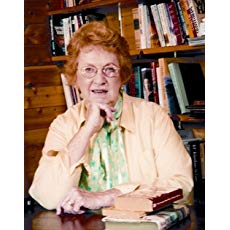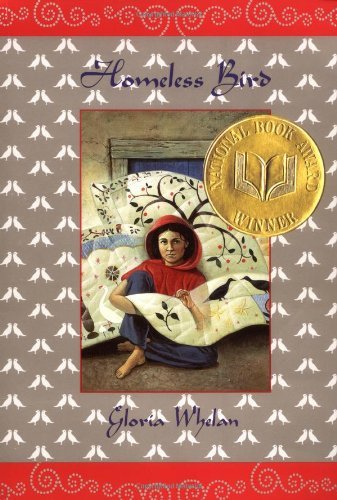“Teacher, do you have any books with pictures of kids that look like me?”
Originally published on the Tumblon website, October 10, 2009

Probably more than one librarian has heard such a request. In the early 1960s when I first began making lists of books that every child should have an opportunity to enjoy, there weren’t many picture books showing characters who were not white children. It was shocking. I remember being on a radio talk show with a black mother discussing the importance of reading to children and feeling a deep embarrassment that the reading aloud I was pushing meant taking children into an exclusively white world. In fact, today it is hard to believe that this was true.
When Ezra Jack Keats wrote The Snowy Day (Caldecott winner in 1963) it was the first full-colored book to feature a black hero. This is the story of Peter’s great fun in a snowy world. Its genius is that the experience he wrote about has nothing to do with race or color; it is a pleasure all children can have. He subsequently wrote a series of books about the friendship of Peter and Willie*—all winners.
Happily today children’s books feature characters from every ethnicity. Authors write about the black experience (Mildred Taylor), or give us stories with Chinese American characters (Laurence Yep) or dozens of other tales with diversity. Most of them are just plain good stories that anyone can enter into. Our country is multi-cultural; our books will be, too. We want children to accept those different than they are.
This diversity was meant to draw us together in one human family—we’re different, but we are the same. That we have moved into a politically correct side of multiculturalism is another matter. It becomes edgy—less about understanding and more about getting your fair share. An incident related by Linda Sue Parks gives an amusing insight into what is happening. She tells of asking for a volunteer in a classroom where she was working. Dozens of eager hands went up. One little boy shouted out, “Choose me. I’m Korean!” He wanted to use his ethnicity as a reason for choice. Linda Sue Parks is Korean; surely she would choose him! While we smile at this story, it does raise a problem of another sort. Are we still handing out and refusing special privileges based on ethnicity?
Equal representation, or just good stories?
But this discussion is about literature. What are children looking for? Do children want only stories about people like them? Roger Sutton wrote in an editorial in Horn Book Magazine, “I am not sure that children want to read about ‘people like me.’ It’s more about being able to see yourself in circumstances unlike your own.” If that’s not true, he says, we might as well give up reading and look in the mirror. It’s the quality of the story that counts.

It is probably not going to be children who argue about diversity. It comes elsewhere from editors and reviewers. Too much emphasis on “difference” can be a way to bully readers and story writers. A great fuss centered around the authenticity of two quality books Kingdom on the Waves (M.T. Anderson) and Chains (Laurie Halse Anderson) because they were written by white people using the voice of African-Americans. Could it possibly be authentic? Gloria Whelan, one of my favorite children’s authors, wrote Homeless Bird, a book about a teenage widow in India. Readers were rewarded with a story of courage, hope and perseverance and a look at a culture they know little about. Criticism came when she revealed to one reviewer that she had never visited India. (And that—horrors!—she didn’t live in New York City, but in a small town in northern Michigan.) That reviewer for whatever reason declared it couldn’t possibly be authentic!
How many stories would we lose if we applied criteria like that? Can a book be multicultural is the author is white? Would it necessarily have been a better multicultural book if it had been written by an Indian writer? Is a book “multicultural” because its characters are Latino? We must be careful about deciding who can write about whom. When a white child finds herself living the experience in an African-American novel or an African American finds himself in an all-white fantasy novel and loving it—then maybe we are on our way to an authentic multiculturalism worthy of its name.
This leads to other problems of political correctness in the middle of stories today. I keep hoping it will go away. The more irregular the cause, the sharper the demands that this cause be represented in a story. It can be any group applying the pressure for inclusion—from PETA to global warming. Personally I am tired of every novel having to have at least one gay character. It isn’t even realistic! While I want to be honest and sensitive, I feel I am being bullied into acceptance or understanding of all things as normal and true. I want to ask, “Where’s the skill in the story-telling?” That’s the real issue.
I know it’s a delicate issue. I can be pilloried for admitting what I just did in writing. But I think all agenda-driven fiction needs to be carefully evaluated.
I started this post mostly to say how glad I am that we have stories that represent many cultures—that boys and girls have an opportunity to understand each other better than ever before. And in doing so, they understand themselves better. It’s what the world needs.
*(An incidental note: since Keats death publishers have hired illustrators to extend his work by creating new titles about Peter and Willie, under his name. Look for the original Keats books.)
© Gladys M. Hunt 2008-10, reissued in 2022 with minor adjustments with permission of the Executor of the Literary Estate of Gladys M. Hunt (4194 Hilton SE, Lowell, MI 49331). Used by permission. All rights reserved.
Also at Redeemed Reader
- Reflection: See “This Thing Called Diversity” for an update on the controversy.
- Reviews: A roundup of books demonstrating diversity done right.
Support our writers and help keep Redeemed Reader ad-free by joining the Redeemed Reader Fellowship.
Stay Up to Date!
Get the information you need to make wise choices about books for your children and teens.
Our weekly newsletter includes our latest reviews, related links from around the web, a featured book list, book trivia, and more. We never sell your information. You may unsubscribe at any time.
We'd love to hear from you!
Our comments are now limited to our members (both Silver and Golden Key). Members, you just need to log in with your normal log-in credentials!
Not a member yet? You can join the Silver Key ($2.99/month) for a free 2-week trial. Cancel at any time. Find out more about membership here.

